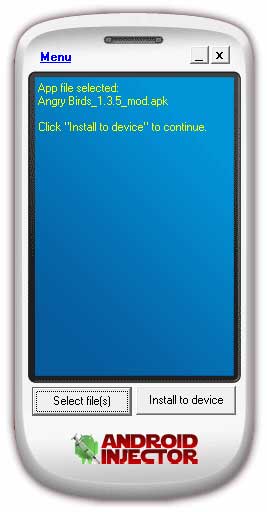With the free app Android Injector, you can install apps (.apk file) that you have downloaded to your computer on your Android smartphones via USB connection, without having to get them through the Android Market. It is very useful, especially for phones that only allow loading apps through the Android Market and
for apps that not available through the Market.

This application is very small and easy to use. Just connect your phone to your PC via USB cable (USB drivers for your phone must be installed). Select Android apps (.apk file) and click “Install to device”button. That’s all. No rooting or anything is required.
Download Android Injector from the following link.
Comments
Post a Comment